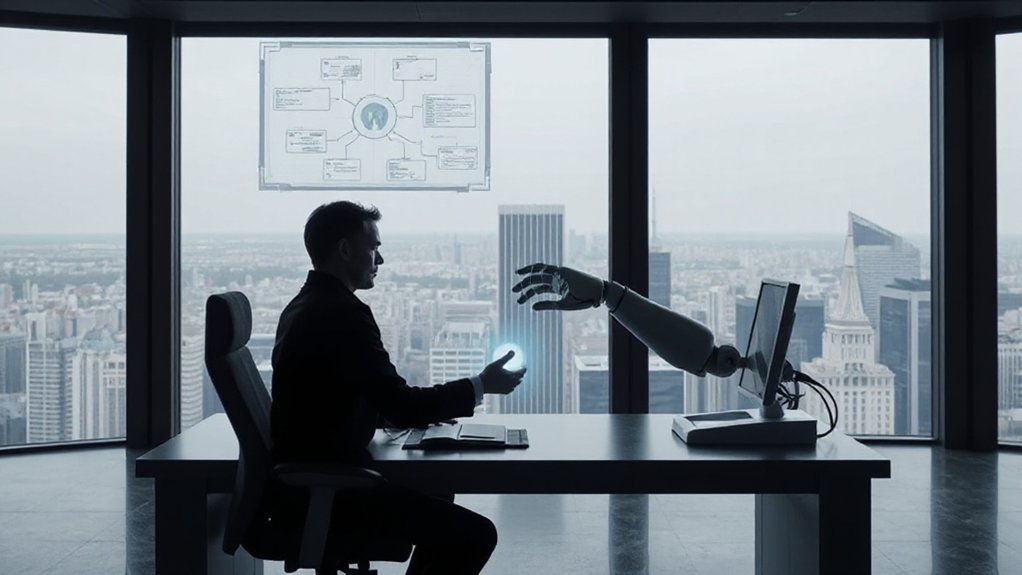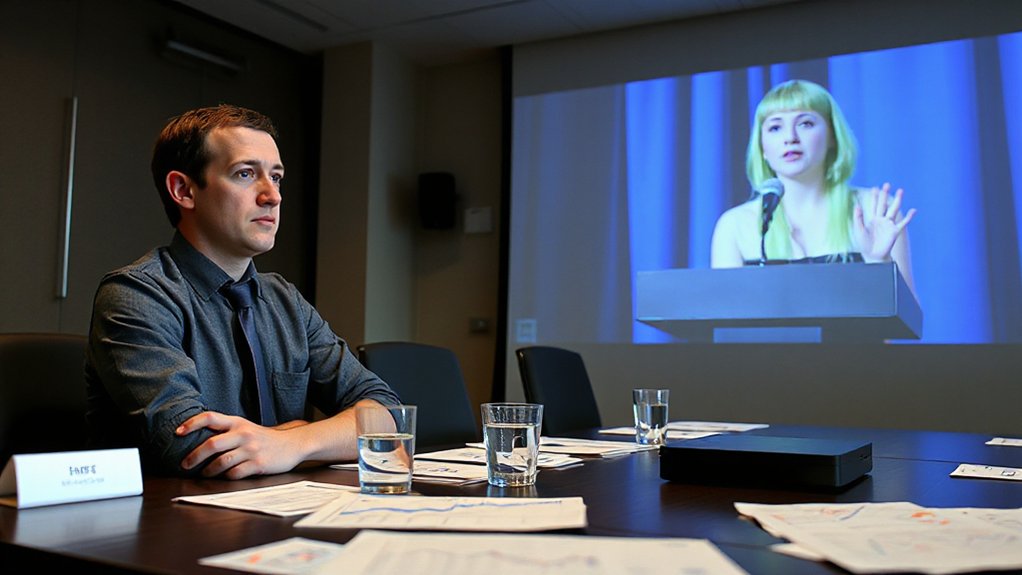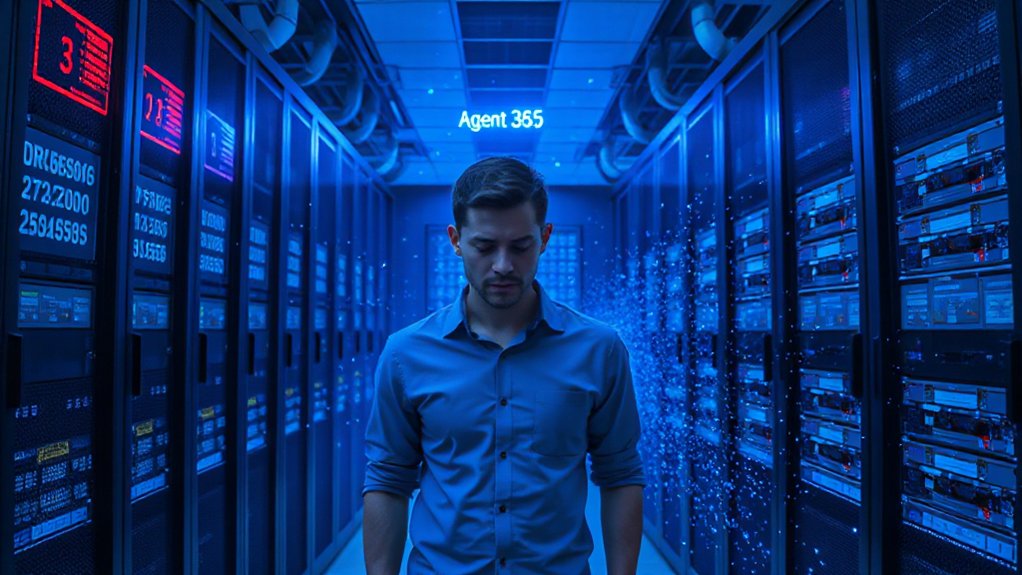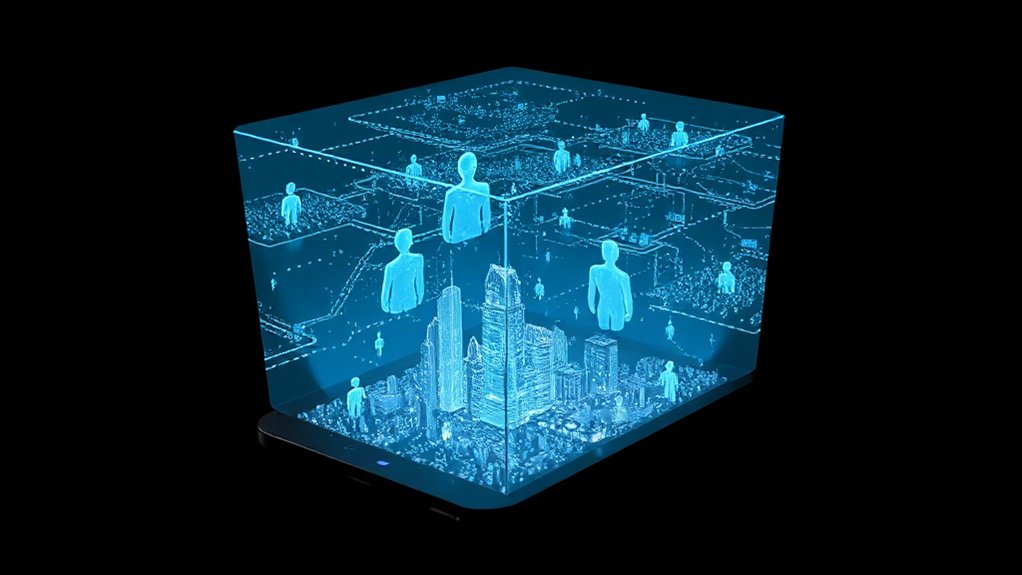While tech innovations often take years to show real impact, AI agents have quickly transformed how businesses operate in 2025. The market for these digital assistants has reached $7.8 billion and is growing fast. Experts predict it will expand to $52 billion by 2030 and $236 billion by 2034, fundamentally doubling every two years.
Nearly 80% of organizations now use AI agents in some form, with 96% planning to expand their use this year. These digital helpers handle routine tasks like answering questions, updating records, and finding information. Companies are investing heavily, with over half of AI budgets now dedicated to these agents.
AI agents are now mainstream business tools, handling routine tasks while commanding the majority of corporate AI investments.
North America leads adoption with 41% market share, followed by Europe at 27%. However, the Asia-Pacific region is catching up quickly, driven by government support. In India, 93% of business leaders plan to implement AI agents within 18 months.
The financial benefits are clear. Many companies report returns exceeding 100% on their AI agent investments. Marketing teams see leads convert up to 50% faster, while customer experience investments yield 128% returns. AI agents reduce costs while speeding up innovation. Organizations are projecting an average ROI of 171% from their agentic AI implementations, with U.S. companies estimating even higher returns.
Technical advances have enabled these gains. Today’s AI agents benefit from better models, longer memory, and improved reasoning abilities. They can now plan, use tools, and complete tasks with minimal human supervision. Some businesses use networks of specialized agents working together on complex projects.
The economic impact is substantial. Generative AI could add between $2.6 trillion and $4.4 trillion to the global economy annually by the late 2020s. AI technology is projected to generate over 15 trillion dollars by 2030, transforming virtually every sector of the global economy. However, this growth comes with workforce changes. By 2028, AI agents may influence at least 15% of work decisions. This expansion comes with environmental costs, as AI systems contribute to massive energy consumption and increasing carbon emissions.
Despite rapid adoption, most companies integrate AI agents cautiously. They focus on augmenting human workers rather than replacing them completely. The technology still works best when paired with human judgment, creativity, and ethical oversight.
References
- https://www.multimodal.dev/post/agentic-ai-statistics
- https://explodingtopics.com/blog/ai-statistics
- https://citrusbug.com/blog/ai-agents-statistics/
- https://masterofcode.com/blog/ai-agent-statistics
- https://www.ibm.com/think/insights/ai-agents-2025-expectations-vs-reality
- https://aws.amazon.com/blogs/aws-insights/the-rise-of-autonomous-agents-what-enterprise-leaders-need-to-know-about-the-next-wave-of-ai/
- https://www.pwc.com/us/en/tech-effect/ai-analytics/ai-agent-survey.html
- https://www.index.dev/blog/ai-agents-statistics
- https://www.sellerscommerce.com/blog/ai-agents-statistics/
- https://company.g2.com/news/2025-ai-agent-report









